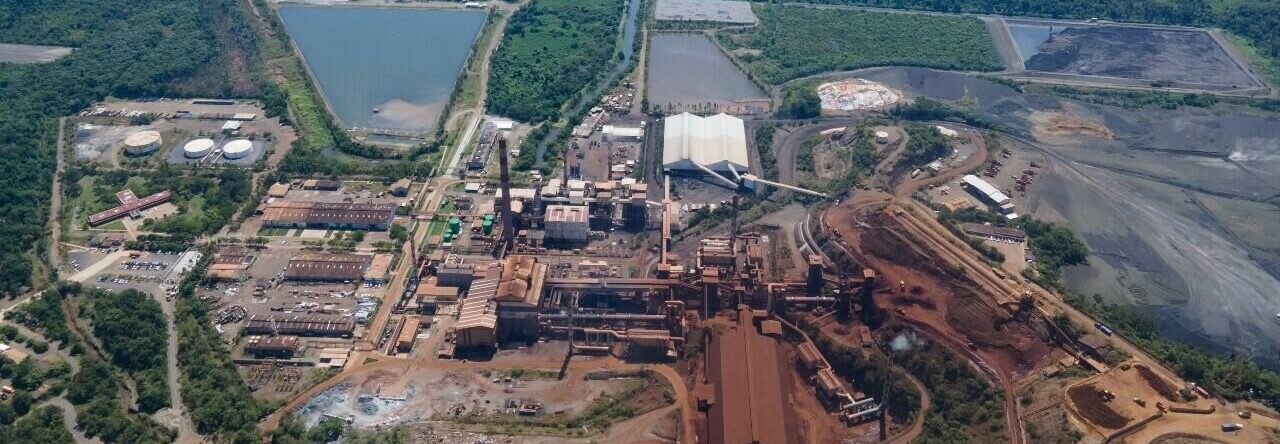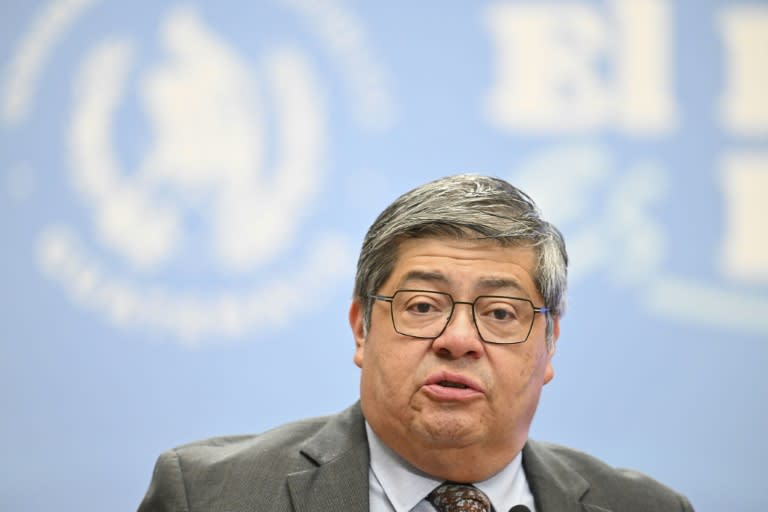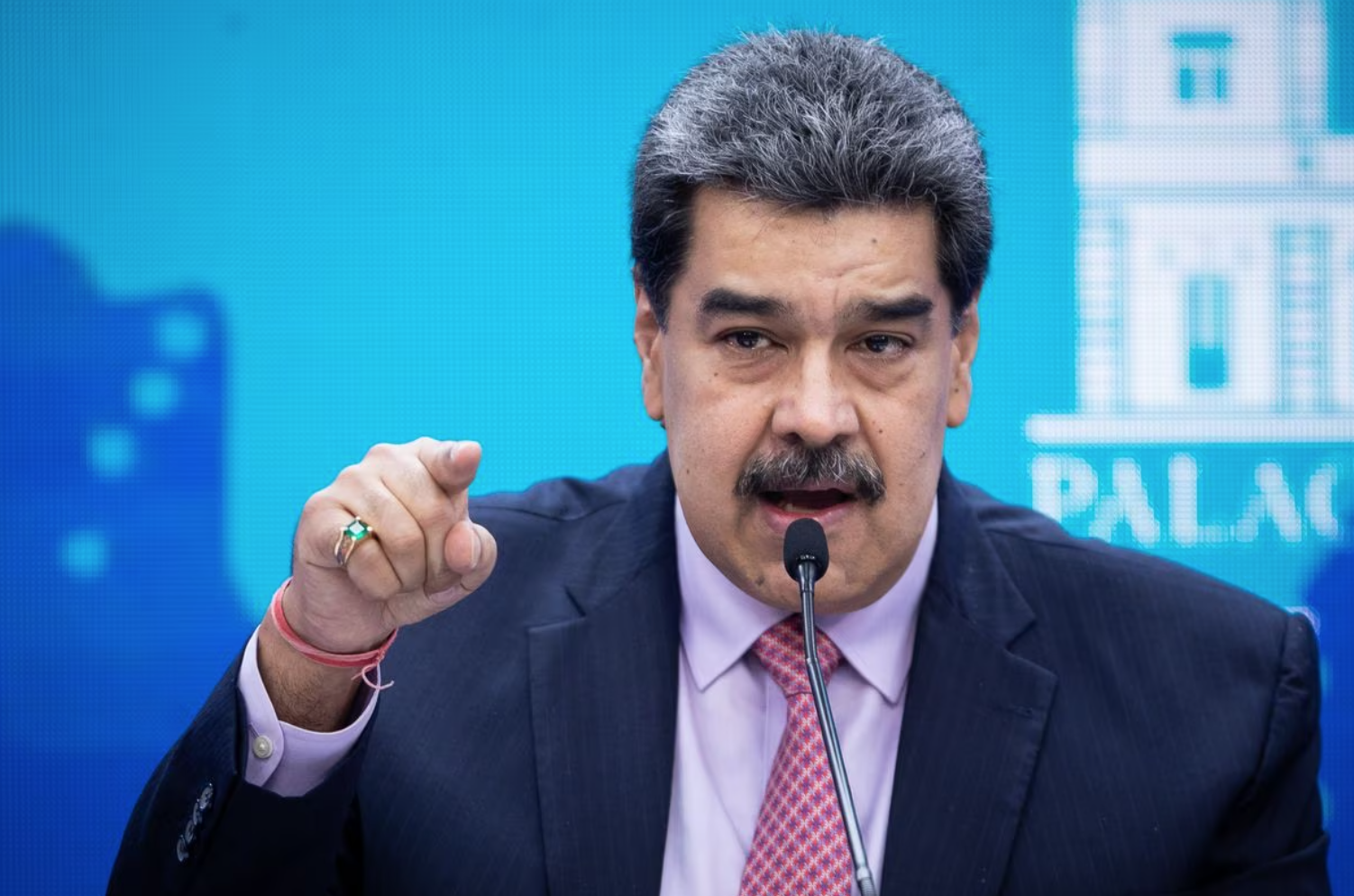Central America
Guatemalan town locked in battle against nickel mine

AFP
The inhabitants of El Estor, a town of mostly indigenous Mayans in eastern Guatemala, are living under a “state of siege”, watched over by armed soldiers after their years-long fight against a nickel mine took an ominous turn.
El Estor’s subsistence fishermen, mainly of the Mayan Q’eqchi’ indigenous group, say the Fenix mine is polluting Lake Izabal, diminishing stocks of fish that were abundant just a generation ago.
The mine’s owners deny the allegation, saying adequate environmental protections are in place.
Frustrated, residents mounted a protest against the mine on Sunday that was put down by security forces using tear gas.
The confrontation left four police officers wounded, and resulted in the government declaring a state of siege, complete with a month-long protest ban and a night curfew enforced by 1,000 police officers and soldiers deployed among the community of 100,000 people.
For three weeks before Sunday’s clashes, residents of El Estor had blocked truck access to the mine operated by the Guatemalan Nickel Company (CGN), a subsidiary of the Swiss-based Solway Investment Group.
“This company is bringing us death,” said Cristobal Pop, 44, a fisherman and protest leader who told AFP he will not be deterred by what he sees as the government’s “intimidation” measures.
“I have four children and they will bear the brunt” of the nickel mining operation, he said.
“My children’s future depends on me.”
– Fewer fish, more jobs –
Pop said that when he was a child, Lake Izabal — Guatemala’s largest — was replete with fish.
He says numbers have dwindled since the Fenix mine resumed nickel extraction and processing in 2014.
In 2017, a red slick spread over the lake, which the community blamed on mining pollution.
In resulting protests, Pop was imprisoned and his comrade Carlos Maaz shot dead.
This month, the community resumed demonstrations, accusing CGN of continuing to mine at Fenix despite a 2019 Constitutional Court order for it to suspend operations.
The court ruled in favor of local communities, who said they had not been consulted about the opening of the mine or its effects on them.
The government was ordered to open fresh consultations, but the people of El Estor say they are being excluded.
For its part, Solway said in a statement Sunday it was adhering to the court order. Extraction at Fenix has stopped, it said, but its processing plant was not affected by the ruling and continues to operate.
The company insisted it was doing all it can to minimize the environmental impact of its activities, investing in social infrastructure, and that its El Estor operations provided jobs for more than 1,900 people “and hundreds of local contractors.”
– A community divided –
Guatemala, Central America’s largest economy, exported 56 million kilograms (123 million pounds) of ferroalloys and ferronickel, mainly to China, in 2019, according to World Bank data.
Guatemala’s earnings from the metal grew from $10 million in 2018 to $54 million last year, and this year had already reached $62 million by August, according to Central Bank figures.
El Estor resident Abelino Chub told AFP the Fenix mine was dividing the community.
“Unfortunately, the pro-mining group only sees the money… but not the level of damage that this company is generating,” he said.
At the CGN headquarters, company president Dmitry Kudryakov told AFP the contamination allegations amounted to mere “speculation.”
He insisted the company adhered to international environmental standards, and said the 2017 red stain was a result of bacteria caused by sewage and fertilizer pollution of the Polochic River that flows into the lake.
Central America
Guatemalan police officer killed in mob riots over baby kidnapping

A police officer was killed during riots provoked by an enraged mob in a Guatemalan town following the kidnapping of a baby, the government reported on Wednesday.
The incidents began on Tuesday night and continued into the early hours of Wednesday in the town of San Vicente Pacaya, about 25 km south of the capital, according to Minister of the Interior Francisco Jiménez.
“There was an incident in San Vicente Pacaya where, unfortunately, a police officer died after being struck in the head with a stone. He passed away this morning,” Jiménez said in a press conference.
He explained that the unrest erupted following the arrest of two suspects in connection with the kidnapping of “a baby just a few months old,” including a woman with a criminal record.
Sports
Venezuela investigates 18 baseball players seeking asylum in Spain

The Venezuelan government announced on Wednesday that it is investigating the case of 18 baseball players who are “under the supervision of Spanish authorities” after seeking protection.
In a statement, Venezuelan authorities said they are working to determine whether this case involves “a possible human trafficking scheme,” though they have not provided any evidence of such a crime.
The Venezuelan government emphasized its commitment to protecting the country’s athletes while also denouncing the use of international legal frameworks by certain governments allegedly seeking to discredit the administration.
CNN reached out to Spain’s National Police for a response to Venezuela’s claims. According to Spanish authorities, the 18 young athletes—including two minors—arrived in Spain to participate in a series of matches but had already planned to apply for asylum. Authorities confirmed on Tuesday that they had begun interviewing the players to process their international protection requests.
The team’s coach addressed the situation in a TikTok video, refuting local media reports that he had abandoned the athletes. He asserted that the players chose to remain in Barcelona to secure the necessary permits to sign with other teams and that their decision was unrelated to any political motivations.
Sports
Filipe Luis debuts as coach in Copa Libertadores with Flamengo

A two-time Copa Libertadores champion with Flamengo during his playing days, Filipe Luis will make his managerial debut in the tournament this Thursday when the popular Rio de Janeiro club faces Venezuela’s Deportivo Táchira.
Placed in Group C alongside Táchira, Liga de Quito, and Argentina’s Central Córdoba, Flamengo starts as one of the favorites—a major challenge for the 39-year-old former player.
His early coaching career has been off to a strong start.
After retiring in 2023, Filipe Luis took over as Flamengo’s head coach on September 30. Just 41 days later, he won his first title, the Copa do Brasil. The year 2025 has already brought two more trophies: the Supercopa do Brasil, where Flamengo defeated Botafogo—current Libertadores and Brasileirão champions—3-1, and the Campeonato Carioca.
At 8:30 PM local time (00:30 GMT Friday), Flamengo under Filipe Luis will make its international debut at Estadio Pueblo Nuevo in San Cristóbal. Although Gerson, Uruguayan Giorgian de Arrascaeta, and Ecuadorian Gonzalo Plata are unavailable, the squad still boasts attacking firepower with Bruno Henrique and Everton.
-

 International5 days ago
International5 days agoSon of journalist José Rubén Zamora condemns father’s return to prison as “illegal”
-

 Central America2 days ago
Central America2 days agoU.S. Homeland Security Secretary urges Mexico to strengthen Guatemala border
-

 International5 days ago
International5 days agoMiyazaki’s style goes viral with AI but at what cost?
-

 Central America4 days ago
Central America4 days agoPanama police clarifies that Interpol alert for Martinelli is still pending
-

 International2 days ago
International2 days agoTrump urges Putin to reach peace deal
-

 Central America2 days ago
Central America2 days agoPanama grants Martinelli 72-hour extension to travel to Nicaragua
-

 International20 hours ago
International20 hours agoParaguay summons Brazilian ambassador over Itaipú espionage scandal
-

 International4 days ago
International4 days agoDeportation flight lands in Venezuela; government denies criminal gang links
-

 Central America17 hours ago
Central America17 hours agoGuatemalan police officer killed in mob riots over baby kidnapping
-

 Sports20 hours ago
Sports20 hours agoFilipe Luis debuts as coach in Copa Libertadores with Flamengo
-

 International20 hours ago
International20 hours agoMilei vows to make Argentina so strong that Falkland Islanders “choose” to join
-

 International20 hours ago
International20 hours agoElon Musk to step down as government advisor, per Trump insiders
-

 Sports20 hours ago
Sports20 hours agoVenezuela investigates 18 baseball players seeking asylum in Spain
-

 International20 hours ago
International20 hours agoICE agent’s arrest of suspect sparks controversy in Boston
-

 International20 hours ago
International20 hours agoÓscar Arias: Trump’s trade policies are a step backward















